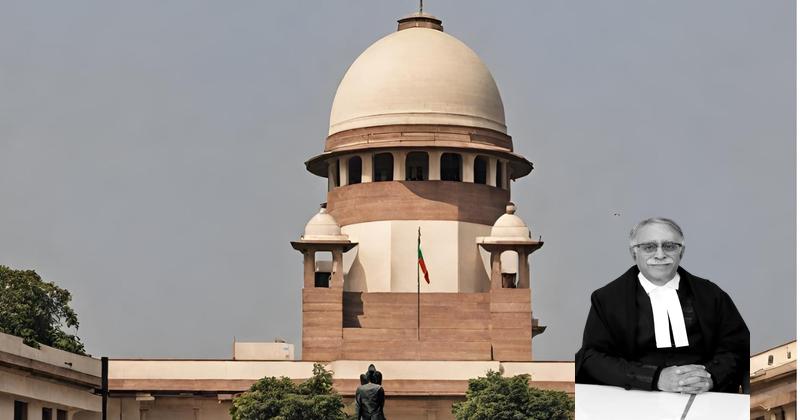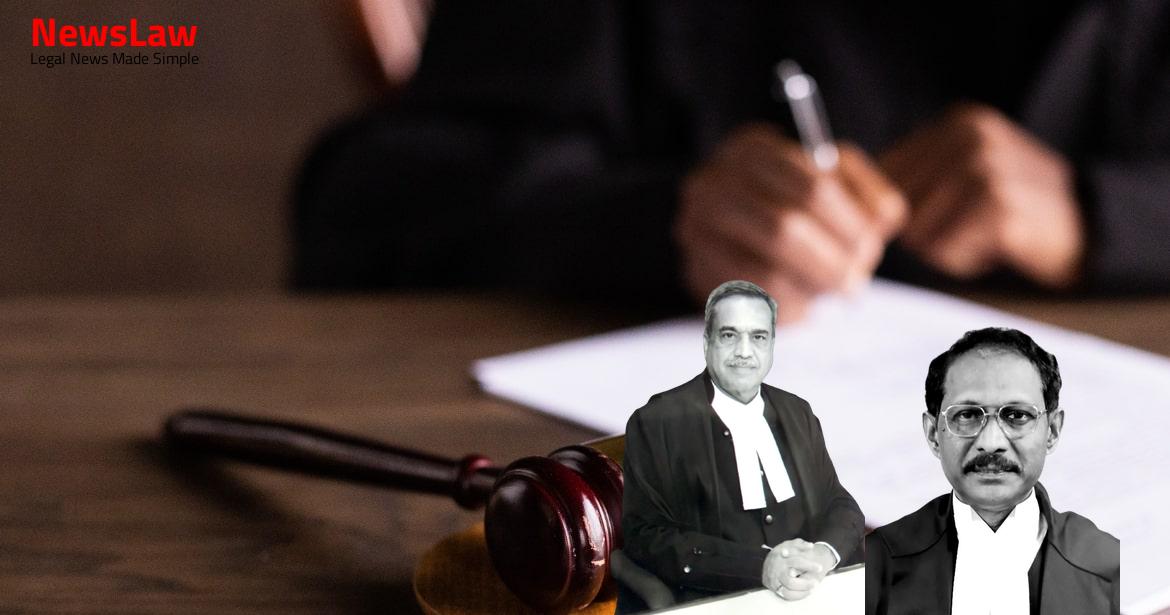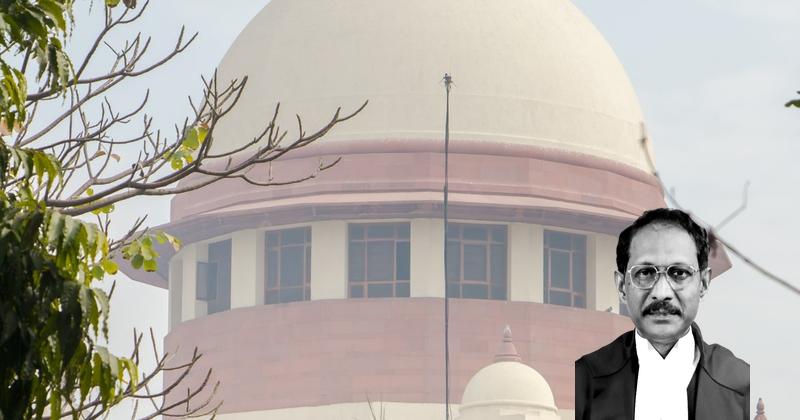In a significant case addressing issues of consent and rape, the Supreme Court of India has rendered a decisive verdict. The judgment explores the complexities of consent in relationships and the implications of false promises. This ruling has far-reaching consequences for understanding the boundaries of consent and the legal framework surrounding such matters. Stay informed as we delve deeper into the intricacies of this case and its implications for justice.
Facts
- Appellant took the prosecutrix to Anupam Nagar of Gwalior where his friend Nitin resided.
- Prosecutrix helped appellant in obtaining loans by mortgaging jewellery.
- Appellant refused marriage unless Rs. 15 lakhs were paid by prosecutrix’s family.
- Appellant took photographs of prosecutrix bathing without consent.
- Appellant threatened to upload prosecutrix’s photographs on Whatsapp if she did not comply.
- Prosecutrix lodged FIR alleging threats and extortion by the appellant.
- Charges under Sections 376 and 506 of IPC framed against the appellant.
- Appellant denied discharge from trial due to the seriousness of the allegations.
- Appellant forced prosecutrix to sign an affidavit and demanded money multiple times.
- Relatives ordered appellant to return jewellery and money to prosecutrix but he refused.
- High Court ordered trial to be conducted to unearth the truth
- High Court found no grounds for interference
- Criminal revision petition was dismissed by the High Court
- Appellant challenged the High Court decision through Special Leave Petition (Criminal) No. 11671 of 2019
- Supreme Court issued notice and passed an interim order staying the decision
- Session Judge observed that there is sufficient evidence in the chargesheet to frame charges against the appellant
Also Read: Tax Collection Dispute: Mysore Sales vs. Excise Contractors
Arguments
- The appellant induced the prosecutrix into a sexual relationship under false promise of marriage, constituting rape under Section 375 IPC.
- The prosecution case is supported by the prosecutrix’s statement under Section 164 Cr.PC and corroborating material.
- A triable case exists, giving the appellant the opportunity to defend himself and prove his innocence.
- The trial court found sufficient material to frame charges against the appellant.
- The High Court, in revisional jurisdiction, found no merit in the appellant’s application.
- The relationship between the appellant and the prosecutrix was claimed to be consensual by the appellant’s counsel.
- However, the FIR and chargesheet indicate the presence of criminal elements in the case.
- Materials were deemed sufficient by the learned Sessions Judge to frame charges against the appellant.
- The appellant is accused of committing rape on the prosecutrix based on false promises and threats.
- The appellant’s counsel argues against interference by the Court in the orders of the High Court.
- The appeal seeks to quash the orders of the Sessions Judge and the High Court, and the proceedings in Sessions Trial No. 505 of 2018.
- The appellant deceived the prosecutrix by promising marriage to maintain a physical relationship.
- Appellant obtained a stamp paper expressing desire to marry the prosecutrix with malicious intent to procure financial support for his business investment.
- Despite continuous requests from the prosecutrix to solemnize their marriage, the appellant evaded it.
- Appellant physically exploited the prosecutrix while deceiving her with false promises.
- The appellant’s intention was clear in exploiting the prosecutrix and avoiding marriage.
- Physical relationship between the appellant and the prosecutrix was based on a false promise of marriage, constituting rape.
- Appellant used coercion and threats to force the prosecutrix into a physical relationship.
- Appellant took advantage of the prosecutrix’s vulnerability and used blackmail to engage in a physical relationship.
- Consent obtained under false pretenses or coercion cannot be considered valid.
- Private photographs of the prosecutrix were used as leverage by the appellant to manipulate her into a physical relationship.
Also Read: M/s Bhanu Iron and Steel Company Ltd. vs. Commissioner of Customs
Analysis
- Relationship between the appellant and the prosecutrix was consensual and lasted almost two years.
- No material evidence of coercion, threat, or fear by the appellant towards the prosecutrix.
- Alleged incidents of physical relationship, taking photographs, and blackmailing were not substantiated with seized evidence.
- Inconsistencies found in the statements of the prosecutrix recorded under Section 161 Cr.P.C. and Section 164 Cr.P.C.
- Prosecutrix’s actions, such as accompanying the appellant willingly and giving him money on occasions, suggest a consensual relationship.
- Lack of evidence on seized items like jewellery, photographs, and mobile phone raises doubts on the prosecution’s case.
- The court concluded that terminating the proceedings would be in the interest of justice based on the lack of substantial evidence.
- Section 90 of the IPC does not define ‘consent’ but describes what is not ‘consent’.
- Consent can be express or implied, coerced or misguided, obtained willingly or through deceit.
- Consent given under misconception of fact is considered vitiated.
- For the purpose of section 375 IPC, consent requires voluntary participation after sound understanding and choice between resistance and assent.
- Section 375 IPC defines ‘rape’ by a man under certain acts, with consent being a key determinant.
- The proviso states that lack of physical resistance by a woman does not imply consent.
- Rape is committed without consent as defined in Explanation 2.
- Consent is explained as unequivocal voluntary agreement through communication.
- Consent under Section 375 IPC must involve active and reasoned deliberation towards the proposed act.
- Consent requires an active understanding of the circumstances, actions, and consequences.
- The individual must make a reasoned choice after evaluating alternative actions and consequences.
- The false promise must have immediate relevance or bear a direct nexus to the woman’s decision to engage in the sexual act.
Also Read: Analysis of Abetment to Suicide Conviction
Case Title: SHIV PRATAP SINGH RANA Vs. THE STATE OF MADHYA PRADESH (2024 INSC 481)
Case Number: Crl.A. No.-001552-001552 – 2023



